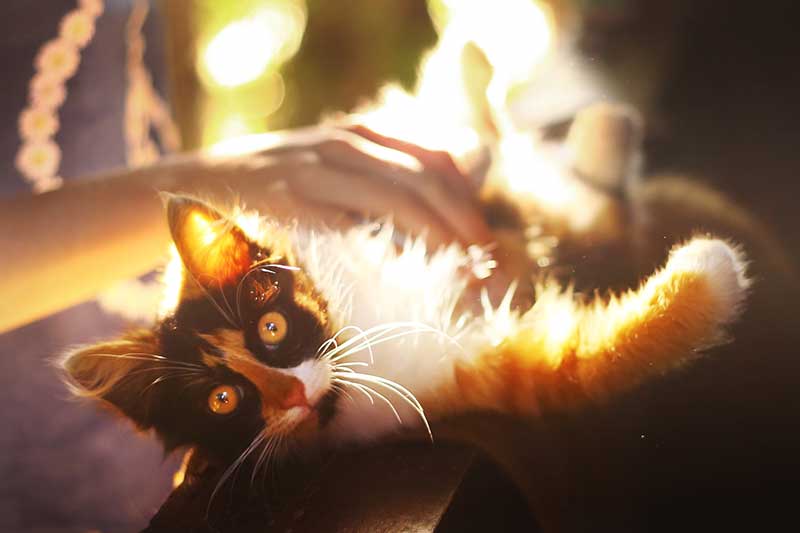
Animals are highly aware of subtle shifts in temperature, precipitation, and barometric pressure – often long before we realize that a change is coming. Their intuition can lead them outside to get out their ya-ya’s before freezing weather dampens the adventurous spirit, or depending on your pet’s age and personality, inside to snuggle for the rest of the calendar year. Regardless, there are definite ways to approach cold weather pet safety, and we’ll get you started.
Winterization
There are a great many things to do to get your house, yard, garage, and vehicle ready for the onslaught of ice, snow, wind, and rain. The fall is the perfect time to take care of various indoor/outdoor seasonal chores, and if they’re like the ones we know and love, your pet will want to get right in the middle of things.
Start Simple
The grass often needs fertilizer in the fall, but most products (like those containing bone or blood meal) are not considered pet safe. Other threats to overall pet safety in the yard include:
- Cocoa mulch
- Pesticides
- Bulbs for spring blooms, like crocuses
- Compost piles
- Rodenticides
Take extra care to only use products that won’t harm your pet. If you must apply certain chemicals on the yard or garden beds, be sure that your pet is indoors until dry. Also, securely store any garden products behind closed doors.
Fall Prep
The garage is one of those places that pets are naturally attracted to, but it’s hardly the safest. Various chemicals, cleaners, solvents, and other items can seriously endanger your pet’s health. Antifreeze is one of the biggest culprits in pet poisoning cases. Again, proper storage of antifreeze containers is key to protecting your pet, but any leaks from your car must be cleaned up promptly.
Know the signs of an antifreeze poisoning and seek emergency help STAT:
- Drooling
- Excessive thirst
- Disorientation
- Vomiting
- Seizures
- Elevated heart rate
- Respiratory distress
- Lethargy
- Lack of appetite
Speaking of Cars
Cats are known to hide inside the space near the engine beneath the hood as it stays warm after the car is parked. A good practice to mitigate the risk of starting the car up while a cat is inside is to simply bang on the hood or around the wheel well to warn them.
Outside Cats
Many felines enjoy the cold weather, but they still need a little help to get through it. If you have an outside-only cat or one that simply prefers long stretches outdoors, install a cat box for them to warm up inside of. Similar to a rabbit hutch, these boxes provide shelter from cold weather. Plus, you can insulate it or equip it with a self-warming bed to keep Fluffy happy and cozy.
Pet Safety Measures
There are lots of ways to support cold weather care. For dogs, be sure to provide the right gear to maintain body temperature while out for walks. Provide them with boots, or be sure to wash and dry their paws after time outside. Keep all senior pets as warm and dry as possible.
As we move towards the holidays, be sure to watch your pet carefully to avoid emergencies related to food, decor, and other seasonal threats to pet safety.
If you ever have any questions, our veterinarians and staff are always happy to assist you.

